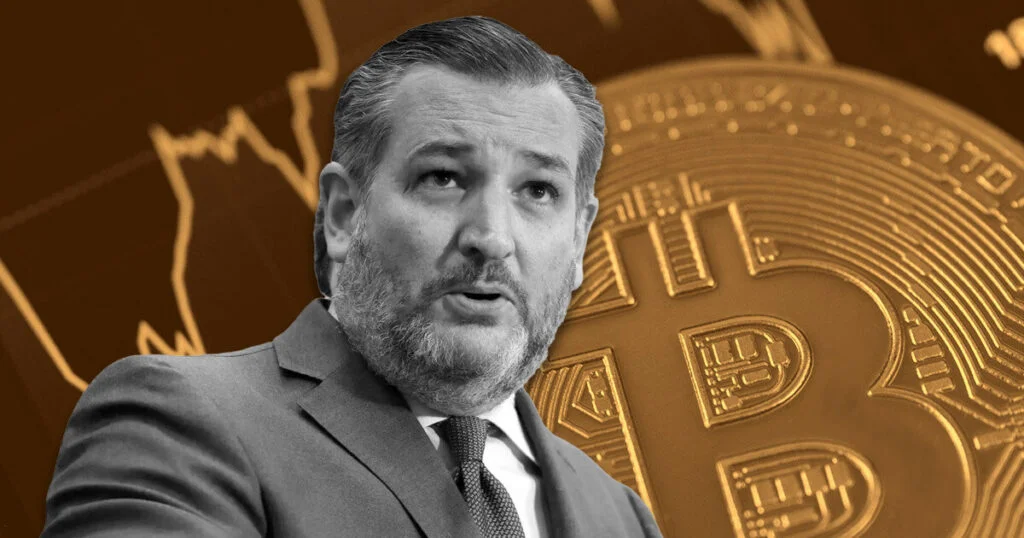US Senator Ted Cruz has announced that he will accept Bitcoin and other cryptocurrencies as donations for his re-election campaign, following a trend of political figures embracing crypto.

US Senator Ted Cruz (R-TX) has become the latest politician to join the Bitcoin bandwagon, as he revealed his decision to accept Bitcoin and other cryptocurrencies as donations for his re-election campaign.
“I am bullish on bitcoin, and I’m proud to accept bitcoin campaign donations,” he said in a recent interview with Forbes.
Cruz’s Website Features Bitcoin Logo
Cruz’s official website now features the Bitcoin logo on the front page, offering supporters the option to donate in crypto.
The Senator is using BitPay, a crypto payment processor that facilitates Bitcoin, Ethereum, Bitcoin Cash, and Litecoin payments with the option of instant converting to USD.
The move by Senator Cruz follows a growing trend among political figures embracing cryptocurrencies.
Earlier this year, mayors from Miami and New York City, representing both sides of the political aisle, elected to receive paychecks in Bitcoin, sparking interest and prompting other mayors to consider similar actions.
Bitcoin Gains Bipartisan Support
While Republicans have generally shown more vocal support for Bitcoin, the phenomenon is not strictly partisan.
Senator Kirsten Gillibrand (D-NY) co-sponsored a crypto bill with Senator Cynthia Lummis (R-WY), demonstrating bipartisan interest in legitimizing the industry and clarifying regulations.
Similarly, Representative Ritchie Torres (D-NY) penned an essay titled “A Liberal Case for Cryptocurrency,” highlighting the benefits for the underprivileged and challenging the power dynamics associated with Wall Street.
Bitcoin’s bipartisan support was evident at the recent Bitcoin 2023 conference in Miami, where politicians from diverse backgrounds, including current and former presidential candidates such as Tulsi Gabbard, Robert Kennedy, and Vivek Ramaswamy, delivered speeches.
Cruz Opposes CBDCs
Despite the growing interest in cryptocurrencies, many politicians remain skeptical, particularly as the Biden Administration pushes for the implementation of a Central Bank Digital Currency (CBDC).
Cruz expressed his concerns about CBDCs during a podcast interview, drawing parallels between their potential surveillance capabilities and the failed efforts behind the Biden Administration’s Build Back Better bill.
He argued that the government’s monitoring of every transaction above $400 would infringe upon the financial privacy of the American people.
Cruz’s sentiments align with the broader resistance to CBDCs among Americans, as indicated by a CATO Institute survey that found 74% of respondents opposing CBDCs as a replacement for traditional currency.
Conclusion
Cruz’s decision to accept Bitcoin and other cryptocurrencies as donations for his campaign is a significant step for the crypto industry, as it signals the growing acceptance and adoption of digital assets among political figures.
If Cruz’s move proves successful, it may encourage other politicians to follow suit, potentially triggering a broader adoption of cryptocurrencies in the political landscape.
